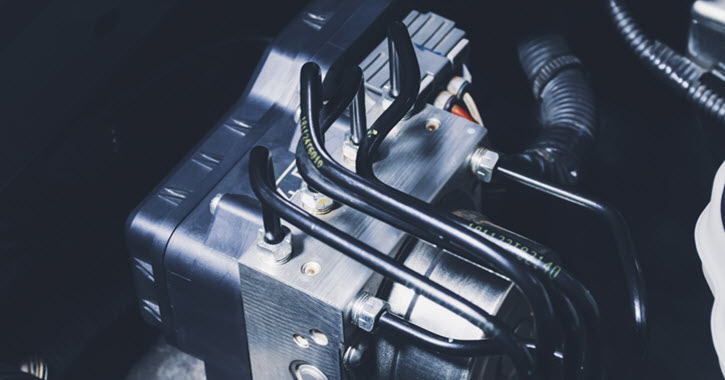
for Audi, BMW, Land Rover, Jaguar, Mercedes,
Mini, Porsche & Volkswagen Repair

for Audi, BMW, Land Rover, Jaguar, Mercedes,
Mini, Porsche & Volkswagen Repair

Volkswagen is known for its exceptional performance and durability, and it can last through generations thanks to its abundance of its reliable features. One of the most important safety additions is an Anti-lock Braking System (ABS). This is a new safety element that has been included in many modern vehicles and plays a critical role in ensuring your safety.
An ABS’s primary purpose is to keep your wheels from locking up during hard braking, typical in bad weather or on uneven terrain. Your VW’s wheel will not skid, crash, or lock if you have an ABS system installed and it is functioning properly. This makes your ride more fun and safe.
All you have to do as a VW owner is keep a close eye on how your VW reacts to braking in order to spot early warning signs of failure and make it to a Volkswagen pro for any repairs.
The ABS is made up of two key components, one for each of your VW’s wheels: the ABS module and its sensors.
The ABS sensors measure the speed of your Volkswagen’s wheels and report that data to the ABS module. When it senses any skidding or hydroplaning, the ABS module plays a critical function by strengthening the brakes.
The ABS module also sends information to the TCS or Traction Control System. If your ABS module isn’t functioning well, it won’t be able to receive any data from the ABS sensor, which might bring grave consequences when you need this safety the most. So make sure your ABS is functioning well to cut down the chances of accidents.
The following are some telltale signs to help you detect an ABS control module problem:

We always put your safety first at the European Service Center. We understand how stressful a damaged ABS can be, so we strive to make the repair process as easy for you as possible. Our trained and professional technicians are always on the front lines, ready to serve you with the best services possible, which they have mastered through many years of experience. We have access to the most up-to-date and high-quality equipment to bring your Volkswagen out of any trouble quickly.
We understand that every car enthusiast requires superior auto servicing. That’s why we’ve expanded our service coverage to include Alpharetta, Chamblee, Norcross, Dunwoody, Buckhead, and Roswell, GA, as well as Dallas, TX and Atlanta, GA. You may quickly make an appointment with one of our service providers over the phone, and we’ll assist you in getting back behind the wheel and on the road in no time.